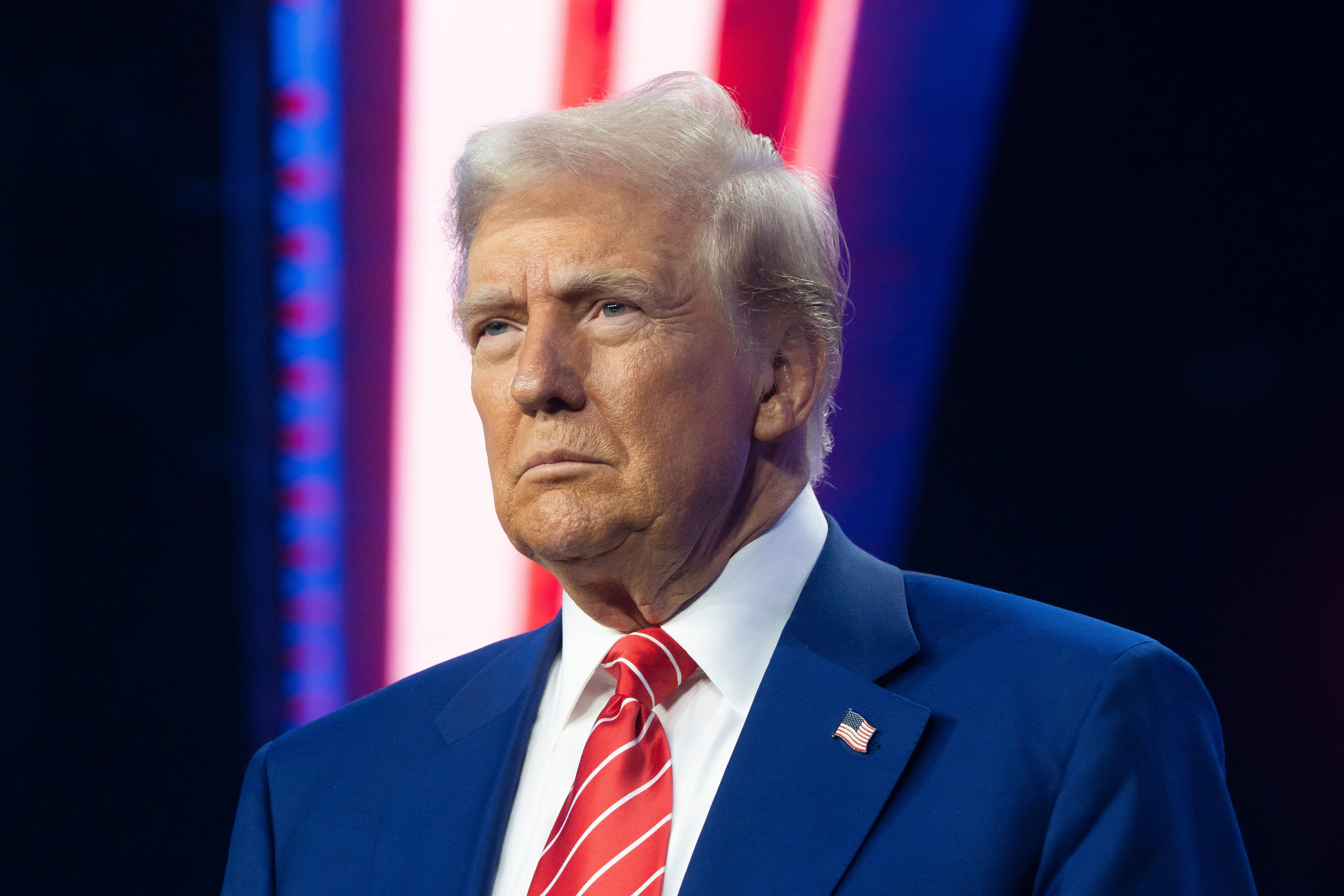Food stamps, environmental safeguards and denying Ozempic: The ways Republicans could pay for Trump’s tax cuts
Incoming administration is expected to cut federal spending to federal programs they don’t prioritize like environmental regulations
Your support helps us to tell the story
From reproductive rights to climate change to Big Tech, The Independent is on the ground when the story is developing. Whether it's investigating the financials of Elon Musk's pro-Trump PAC or producing our latest documentary, 'The A Word', which shines a light on the American women fighting for reproductive rights, we know how important it is to parse out the facts from the messaging.
At such a critical moment in US history, we need reporters on the ground. Your donation allows us to keep sending journalists to speak to both sides of the story.
The Independent is trusted by Americans across the entire political spectrum. And unlike many other quality news outlets, we choose not to lock Americans out of our reporting and analysis with paywalls. We believe quality journalism should be available to everyone, paid for by those who can afford it.
Your support makes all the difference.Donald Trump and his Congressional allies could add requirements to welfare programs such as Medicaid, withhold prescription drugs from federal health care coverage, repeal environmental regulations and more in order to reduce federal spending and pay for his new round of tax cuts.
Trump is determined to cut taxes for Americans but doing so means the government will need to cut federal spending elsewhere, or risk raising the national debt by trillions of dollars.
Advisers to Trump, such as Elon Musk and Vivek Ramaswamy, are focused on dramatically reducing federal spending by as much as $2 trillion. They have been given positions heading the advisory committee, the Department of Government Efficiency (DOGE), to suggest funding reductions.
Their input, along with Republicans efforts, means that popular federal programs that have expanded under the Biden administration may face restrictions.
Here are some ideas Republicans have floated to reduce federal spending and pay for Trump’s tax cuts:

Tariffs
The president-elect has proposed adding tariffs to imports to supplement lowering taxes for Americans – an idea that many economists have opposed.
“To me, the most beautiful word in the dictionary is ‘tariff,’” Trump said at the Chicago Economic Club in October. “It’s my favorite.”
Trump has suggested a 25 percent tariff on Mexico and Canada, the U.S.’s two largest trading partners and an additional 10 percent tariff on China. He’s also threatened to tariff European and Indian imports.
One report from the Committee for a Responsible Budget estimates the tariff on China alone could raise more than $4 trillion over 10 years.
However, economists have warned that tariffs will most likely hurt U.S. consumers because companies will raise prices to supplement the increased tax.
Adding work requirements to Medicaid
Republicans have signaled they may look into adding work requirements to Medicaid, the government program that provides health insurance to those with limited income or resources.
Medicaid accounts for roughly 10 percent of government spending overall but provides health insurance for more than 72 million people.
Republican Representative Jodey Arrington of Texas told reporters in November that adding a “responsible and reasonable work requirement” could reduce spending by $100 billion and checking Medicaid eligibility more than once a year could reduce spending by $160 billion.

“I feel like there are some common-sense, reasonable things that almost 90 percent of the American people would say, ‘That’s got to change,’” Arrington said.
Implementing those policies may reduce spending but it would also leave tens of thousands of people without health insurance.
Rolling back SNAP benefits
House Republicans have previously tried to roll back funding to the Supplemental Nutrition Assistance Program (SNAP), formerly known as food stamps, by limiting what items SNAP recipients can purchase.
In May, the Republican chair of the House Agriculture Committee proposed adding limitations to the Thrifty Food Plan that could save an estimated $30 billion over a decade.
During his first administration, Trump suggested cutting funding to the program by nearly 30 percent and adding work requirements.
Repeal environmental regulations
Trump is expected to repeal environmental regulations implemented by the Biden administration – something he did during his first administration as well. Though it could free up federal funds, it would also damage the environment at a critical time.

In rallies, speeches and press releases, Trump has repeatedly promised to cut regulations to lower energy costs and increase oil and gas production – specifically repealing Biden’s Inflation Reduction Act.
The Committee for a Responsible Federal Budget suggests Trump’s proposals could save the U.S. $700 billion in spending.
Withhold weight-loss drugs from federal healthcare coverage
The Biden administration has suggested popular weight-loss drugs should be covered under Medicare and Medicaid, something that could cost up to $35 billion over the next decade – but it’s unlikely the incoming administration will approve it.
Robert F. Kennedy Jr., the Health and Human Services Secretary nominee, has criticized the government covering weight-loss medication.
“For half the price of Ozempic, we could purchase regeneratively raised, organic food for every American, three meals a day and a gym membership, for every obese American,” Kennedy said at a roundtable earlier this year.
Repeal student loan forgiveness
Republicans have been unwelcoming toward Biden’s student loan forgiveness plan, Saving on a Valuable Education (SAVE), and Trump could make their wish come true by canceling it entirely once he takes office.
Though the forgiveness plan can offer life-changing financial assistance to millions of students, it is also estimated to cost roughly $475 billion over 10 years.
Trump advisers and allies have reportedly discussed ways to unwind the program once he takes office, two people familiar with the discussions told Politico in November.
Canceling student loan forgiveness could save the government billions.

Join our commenting forum
Join thought-provoking conversations, follow other Independent readers and see their replies
Comments